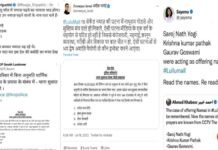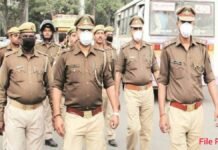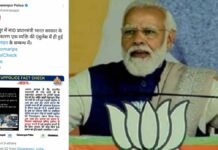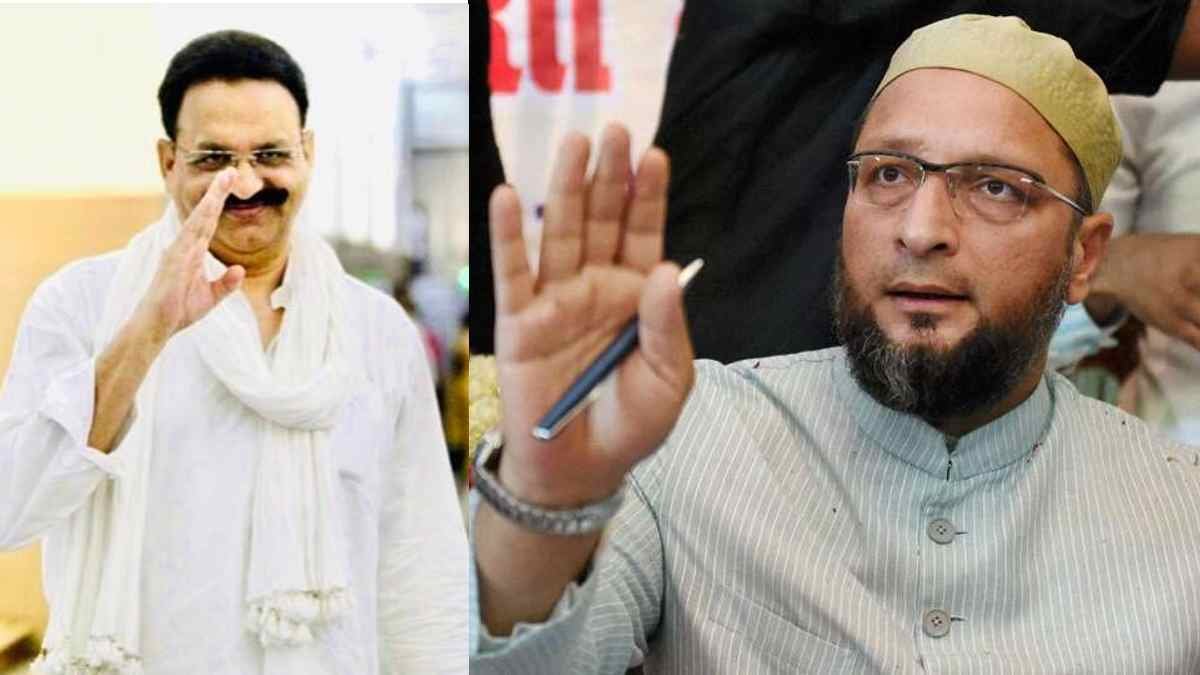To, Sh. Sunil Arora Ji,
The Chief Election Commissioner,
Election Commission of India, New Delhi-01,
Sub: Make minimum qualification mandatory for contesting election
Sir,
Petitioner is filing this petition to insert an additional condition- “political parties shall setup candidates, who are graduate or equivalent or above” in Paragraph 6A “Conditions for recognition as a State Party”, Paragraph 6B “Conditions for recognition as a National Party” and Paragraph 6C “Conditions for continued recognition as a National or State Party” of the Election Symbols Order, 1968, and Model Code of Conduct.
This would not breach the principle of separation of powers because there is a legislative vacuum insofar as the Parliament has not enacted any legislation in the field covered by the Symbols Order, which has been issued by the ECI in exercise of its plenary powers under the Article 324.
The powers of the ECI under Article 324 of the Constitution operates in areas left unoccupied by legislation and is plenary in character. [Kanhiya Lal Omar v. R.K. Trivedi, (1985) 4 SCC 628, Para 16] The power of “superintendence, direction and control” of the conduct of elections, vested in the Election Commission, is executive in character. [A.C. Jose v. Sivan Pillai, (1984) 2 SCC 656, p. 22] The Symbols Order is traceable to the power of the Election Commission under Article 324. [Kanhiya Lal Omar, para 16] The power to amend, vary or rescind an order which is administrative in character under Section 21 of the General Clauses Act, specifically referred to in paragraph 2(2) of the Symbols Order, would permit the Election Commission to withdraw recognition of a political party. [Janata Dal (Samajwadi) v. Election Commission, (1996) 1 SCC 235, para 6] Accordingly, it is clear that the proposed amendment in the Symbols Order would operate in a field where there is a legislative vacuum.
The proposal is vital because the functions performed by legislators are vital to democracy and there is no reason why they should be held to lower standards than Municipal Councilor and Gram Pradhan. In many States, Candidates for Municipal Councilor and Gram Pradhan certainly would not be considered at all if they are illiterate. However, it is worth noting that the proposed amendment is not an eligibility condition for legislators but rather merely imposes a condition on political parties.
The effect of proposal would only be to impose an additional condition on a political party for obtaining and retaining the status of a “recognized national party” or “state party”, which would entitle it to a reserved symbol under the Election Symbols Order 1968.
The statutory right to register a political party under Section 29A, RPA and contest election as an independent would not be affected in any way. Moreover, under Section 13A of the Income Tax Act, 1961, political parties are exempt from paying income tax on contributions received by them. Hence, imposing a condition during elections preventing them from fielding illiterate candidates in an election is a reasonable restriction, keeping in mind the concessions and privileges enjoyed by them.
If the person, who is going to rule our country, is not educated enough to understand the pros and cons of the rules or who is not able to understand the ways to develop our country, then it would be disastrous.
The people who are taking part in politics should have a minimum qualification so that they can develop our nation as developed countries. In the rapidly developing world, every person is equipped with knowledge. For this, information and communication technology (ICT) is helpful. Through ICT one can improve the education. Education is the prime source for development of human beings. To understand the on-going latest changes politicians may improve their educational qualifications. Hence, minimum education is must for contesting candidates.
It is true that even if a person went through higher education, he can still be unsuitable to be a leader, but to have a leader that didn’t even go through college or university environment is unfathomable. Do we, as a country, wish to be represented by a dumbfounded persona that can’t find the exit or well-spoken and expressed figure that can handle any situation that arise at the moment? We have to push the education as necessary for qualification of politicians or we will start regressing toward Dark Ages and Spanish Inquisition. The person who is preparing for IAS is the most literate person of the country as he leaves his luxuries behind for the sake of that post. But for, say, an MP or MLA or any post in politics, there are no rules. Though, whoever is running the country, should be more literate. Therefore, minimum educational qualifications should be compulsory for legislators as education is the key for success
An educated mind is a healthy mind, and a healthy mind can also govern in a healthy way. An educated person is able to think logically and can also differentiate between right and wrong which is necessary in politics. We cannot give our country in the hands of a person who doesn’t know how to handle himself. It is not that the person should be highly qualified but there should be a minimum qualification. Education is essential for a legislator because he is the one who is responsible to take decisions. The Legislators should have minimum educational qualification and must have good knowledge because knowledge gives right decision and development of nation is possible.
An ill-literate leader has less thinking, realizing and implementing ability, which he needs to uphold. The political system will be hampered as its supremacy will be devastated. Not only this, the young children will make a mindset that study has no value because people deprived of education are more prosperous than the educated ones. Uneducated politician may misuse their power and in spite of thinking for development they will get themselves involved in corrupt activities. They would not bother of citizen’s deficiency and problems. In order to prevent from all the shortcomings, minimum education should be compulsory for contesting.
A legislator without education is like an Emperor of Fools. In today’s world, even a minor technician requires an educational qualification, so why not, for those who carry the enormous responsibility of managing and developing a vast and versatile nation? Petitioner feels the immense necessity to make it mandatory for contesting election.
There is absolutely no doubt that an MP receives a salary from the Government, the same having been sanctified by the Constitution and the law. Article 106 of the Constitution of India provides that “the members of either House of Parliament shall be entitled to receive salaries and allowances as may from time to time be determined by Parliament by law.” The law in pursuance thereof is The Salary, Allowances and Pension of Members of Parliament Act, 1954 along with other Rules made hereunder. (i) Travelling and Daily Allowances Rules, 1957 (ii) Housing and Telephone Facilities Rules, 1956 (iii) Medical Facilities Rules, 1959(iv) Allowances for Journeys Abroad Rules, 1960 (v) Constituency Allowance Rules, 1986 (vi) Advance for the Purchase of Conveyance Rules, 1986 (vii) Office Expense Allowance Rules, 1988.
On a regular basis, each of these are revised upwards, at the behest of the MPs themselves, drawing on the consolidated fund of India. There are similar such provisions in each of the States for the MLAs as well. There can be no quarrel with this however, as they are considered reasonable expenditures for the upkeep and maintenance of an individual duly elected or nominated to serve nation in the high house of Parliament. Legislators are public servants who take a Constitutional Oath [Forms III and VII of Third Schedule to the Constitution] to serve the people and towards this end, they should be atleast graduate.
When a Bill is introduced in either House of Parliament or State Assembly, the Legislators are supposed to debate on various provisions of the Bill, and propose amendments if they so wish. An illiterate legislator cannot faithfully perform this duty without help of others. Besides the above facts, the Oath of Affirmation, which a Legislator makes under Third Schedule of the Constitution, obliges him to faithfully discharge the duty upon which he is entering. Needless to say that an illiterate MP cannot faithfully discharge his duty as a legislator if he spends time in other profession, which requires fulltime. Rules of procedure in each House of the Parliament have provisions for ‘Question Hour’ and ‘Zero Hour’ during which written and oral questions can be asked by MPs. These include questions specific to State or Constituency, which he represents or of national interest. Therefore, MPs must be highly literate.
The Parliament has many committees, whose members are nominated by the Chairperson. The Committees scrutinize policies, programmes and bills and propose amendments to the same. There are other Committees such as Public Accounts Committee and Committee on Public Undertakings, which scrutinize reports submitted by CAG. These Committees are regulated by the Rules of Procedure in each House. An illiterate Legislator cannot perform this duty also.
The Constitution also has some provisions to make MP’s accountable. Article 102 states that a MP can be disqualified if he holds an “Office of Profit” under the Government. He can also be disqualified if he quits his party or defects to another party after being elected as an MP under the 10th Schedule to the Constitution. Under Article 101, if an MP is absent from the meetings for more than 60 days without permission, his seat may be declared vacant. Under Article 104, if an MP sits or votes in Parliament without taking oath, he shall be liable to pay a fine of up to Rs 500 per day. However, there is no provision either in the Constitution or in the Rules of Procedure to measure the performance of MPs.
The Legislator plays important role in development of his State. He can fulfill his developmental role under the Member of Parliament Local Area Development Scheme (MPLADS). Under the scheme, every MP is allocated Rs 5 crore per year for initiating developmental works in his constituency. The scheme is administered by the Ministry of Statistics and Programme Implementation (MoSPI), which lays down guidelines on the works and activities permitted under MPLADS. The funds under MPLADS are channeled through the respective implementing agencies in district.
Local bodies such as Panchayats and municipalities also have an important role in bringing development at the grassroots. Part IXA of the Constitution has a provision under which Legislator of State may provide for representation of MP at intermediate and District level Panchayats (Panchayat Samiti and Zila Parishad). Similarly, under Part IXA of the Constitution, State legislator may provide for representation of MPs in municipal bodies within the constituency. MPs may be nominated to District Planning Committees (DPCs) which are responsible for preparing development plans for district.
The MPs have to monitor centrally sponsored schemes in their respective constituencies. The National Rural Drinking Water Programme (NRDWP) mandates setting up of District Water and Sanitation Mission (DWSM) of which MPs and MLAs from the area would be members. The DWSM is among other things, responsible for formulation, management monitoring of projects on drinking water security, scrutiny and approval of the schemes submitted by Block Panchayat/Gram Panchayat and coordination of matters relating to water and sanitation between different departments. Similarly, under the National Rural Health Mission (NRHM), MPs are expected to be member of District Level Vigilance and Monitoring Committees (DVMC) to review the progress in implementation of scheme.
The MPs could also work towards catalyzing schemes of the State and Central government in their constituencies. This is possible by proactive engagement with public officials at the Central and State levels, greater interaction with constituents to understand their needs and concerns, and greater information – both qualitative and quantitative – about their constituencies. As elected representatives, they have legitimate political authority to engage directly with the private/corporate sector for industrial development of their constituencies.
The MPLAD Scheme provides funds for implementing development works in their constituencies. Permissible items under the scheme are: (i) Purchase of tricycles, motorized/battery operated wheelchair, artificial limbs, etc. for physically challenged individuals. The items purchased will be given to the beneficiaries at a public function. Applications for such assistance shall be examined and approved by Committee under District Chief Medical Officer to ensure proper eligibility.(ii) Health Purchase of ambulances/hearse vans. District Magistrate/Chief Medical Officer is responsible for ownership and management of ambulances. Purchase of ambulances to transport sick or injured animals in Wildlife sanctuaries and National Parks. The Wildlife Sanctuary /National Park concerned would be responsible for ownership and management of the ambulances. (iii) Purchase of computers, computer software along with training for government and government aided institutions. Mobile Library for educational institutions of Centre, State, U.T/Local bodies and furniture up to Rs 50 lakh for primary/secondary school. Purchase of book for schools/colleges/public library and vehicles including school buses/vans with a limit of Rs 22 lakh/year. The Twelve Nominated MPs can recommend works anywhere in the Country. Form the above stated facts, it is very clear that Parliamentarians have multidimensional role in our democratic system therefore it is need of the hour to set minimum qualification for contesting election.
The primary function of a Member of Legislative Assembly (MLA) is law-making. The Constitution of India states that the Members of the Legislative Assembly can exercise his legislative powers on the State List and the Concurrent List. The State List contains subjects of importance to the individual State alone, such as trade, commerce, development, irrigation and agriculture, while the Concurrent List contains items of importance to both the Union Government and the State Government such as succession, marriage, education, adoption, forests and so on. Although ideally only the Members of the Legislative Assembly can legislate on the State List, the Parliament can legislate on subjects in the State List while Emergency has been imposed on the State. In addition to that, on the matters that are included in the Concurrent List, the laws made by the Parliament are prioritized over the laws made by the Legislative Assembly if the President does not give his assent to the laws made by the Legislative Assembly. Although MLAs are the highest law-making organs of the State and the profession is honorable and noble but there is no restriction on them to practice other minimum qualification like Members of Executive and judiciary. There is no provision of minimum number of hours that a MLA must spend in Assembly and his constituency.
The Legislative Assembly holds absolute financial powers. A Money Bill can only originate in the Legislative Assembly if MLAs give consent. It must be noted that in the States that have a bicameral legislator, both the Legislative Council and the Vidhan Parishad can pass the Bill or suggest changes to the Bill within 14 days of its receipt although the members are not bound to abide by the changes suggested.
All grants and tax-raising proposals must be authorized by the MLAs. They exercise certain other executive powers also. MLAs control the activities and actions taken by the Chief Minister and the Council of Ministers. In other words, the government is answerable to the Legislative Assembly for all its decisions. In addition, A vote of no-confidence can be passed only by the MLAs. If passed by a majority, force the ruling government to resign. Question Hour, Cut Motions, Adjournment Motions can be exercised by MLAs in order to restrict the executive organ of the Government. MLAs have certain electoral powers also. They comprise the Electoral College that elects the President of India. MLAs elect Members of the RajyaSabha, who represent a particular state and Speaker of the Legislative Assembly. In States with a bicameral legislator, one-third of the members of the Legislative Council are elected by the MLAs.
Significance attached by the founding fathers to ‘Right to Equality’ is evident not only from the fact that they employed both the expressions ‘Equality before the Law’ and ‘Equal protection of the Laws’ in the Article 14 but proceeded further to state that the same rule in positive and affirmative terms in the Articles 15-18. Right to Equality postulated by the Article 14 is as much a fundamental right as any other fundamental right dealt with in Part-III of the Constitution. Article 14 enunciates a vital principle, which lies at the core of our republicanism, and shines like a beacon light towards the goal of classless egalitarian socio-economic order which we promised to build for ourselves when we made a tryst with density on that fateful day when we adopted our Constitution. If we have to choose between fanatical devotion to this grate principle of equality and feeble allegiance to it, we would unhesitatingly prefer to err on the side of the former as against the later. What the equality clause is intended to strike at are real and substantial disparities and arbitrary and capricious actions of the Executive and it would be contrary to the object and intendment of the equality clause to exalt delicate distinctions, shades of harshness and theoretical possibilities of prejudice into legislative inequality/executive discrimination.
The fathers of our Constitution adopted parliamentary system from the England but it has been degraded in last six decades. The major premises, which ensure its success in the England, failed to grow-up in our country. At concluding session of the Constituent Assembly, the Hon’ble Dr. Rajdendra Prasad said: “We have prepared a democratic Constitution system. But, the successful working of democratic institution requires in those who have to work them, willingness to respect the viewpoint of others, capacity for compromise and accommodation. Many things, which cannot be written in a Constitution, are done by conventions. We shall show those capacities and develop conventions. Whatever the Constitution may or may not provide, the welfare of the country will depend upon the way in which the country is administered. That will depend upon the men who administer it. It is a trite saying that a country can have only the government it deserves. Our Constitution has provisions in it, which appear to some to be objectionable from one point of view or another. We must admit that the defects are inherent in the situation and the people at large. If the elected people are capable and men of character and integrity; they would be able to make the best even of a defective Constitution. If they are lacking in these, Constitution cannot help the Country. After all a Constitution like a machine is a lifeless thing. It requires life because of men who control it and operate it and India needs today nothing more than a set of honest men who will have the interest of the Country before them. There is fissiparous tendency arising out of various elements in our life. We have communal differences, caste differences, language differences, provincial differences, and so on and so forth. It requires men of strong character, men of vision, men who will not scarify the interest of country at large for the sake of smaller groups and areas and who rise above the prejudices, which are born of these differences. Today I feel that the work that confronts is even more difficult than the work which we had when we were engaged in the struggle. We did not then have any conflicting claims to reconcile, no lopes and fishes to distribute, no powers to share. We have all these now and the temptations are great. Would pray to God that we shall have the wisdom and strength to rise above them and to serve the Country which we have succeeded in liberating”.
Legislators should not only be literate but also restricted from practicing other professions, as similar to the restrictions imposed upon other public servants and Members of Judiciary. In fact, Legislators should comport higher standard of ethics and morality rather than lower one.
Sir,
The separation of power cannot prevent the ECI to address the above stated problem. Therefore, keeping in view the above stated facts, please take apposite steps to insert an additional condition: “political party shall setup candidates who are graduate or equivalent or above” in Paragraph 6A “Conditions for recognition as a State Party”, Paragraph 6B “Conditions for recognition as National Party” and Paragraph 6C “Conditions for continued recognition as a National or State Party” of the Election Symbols (Reservation & Allotment) Order 1968 and Model Code of Conduct for the political parties and candidates.
Please also inform all political parties that the violation of proposed amendment shall result in seizure of recognition and election symbol. The proposed amendment cannot result in a violation of the fundamental right under Article 19(1) to form an association. A candidate, who is non-graduate, can become or continue to be a member of political party. The condition that the political party does not give him a ticket as a condition for recognition as a State or National party, to guarantee continued usage of the reserved symbol, does not impinge on the freedom of association of either the candidate or the political party. Further, even assuming that it could be characterized as falling within the scope of Article 19(1)(c), the proposed amendment arguably is a reasonable restriction that is narrowly tailored and can be justified on the ground of public order and morality in Article 19(4) of the Constitution.
Thanks and Regards
Ashwini Kumar Upadhyay
Also Read: Population Explosion is the Biggest Problem of India











































